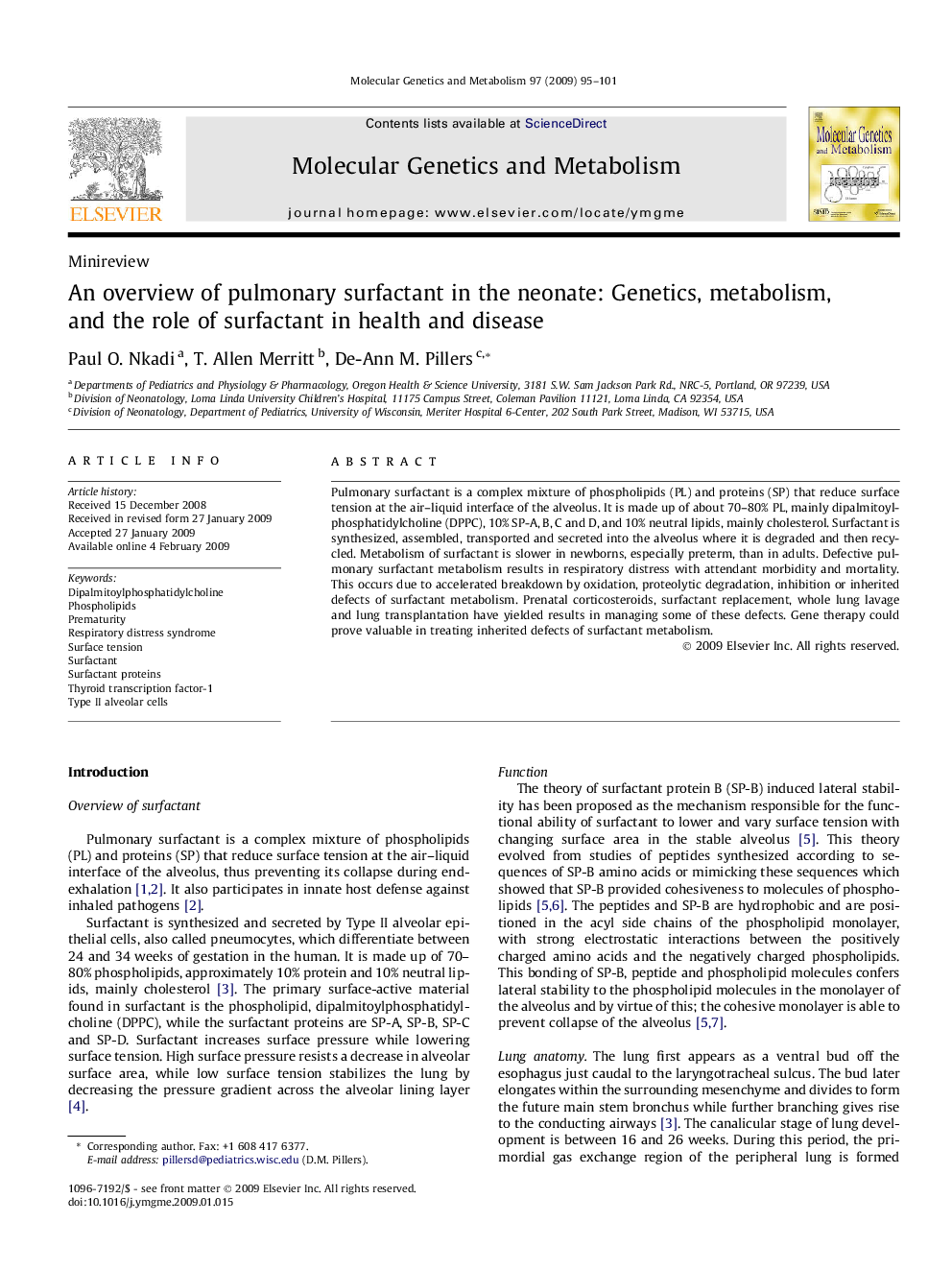| Article ID | Journal | Published Year | Pages | File Type |
|---|---|---|---|---|
| 1998596 | Molecular Genetics and Metabolism | 2009 | 7 Pages |
Pulmonary surfactant is a complex mixture of phospholipids (PL) and proteins (SP) that reduce surface tension at the air–liquid interface of the alveolus. It is made up of about 70–80% PL, mainly dipalmitoylphosphatidylcholine (DPPC), 10% SP-A, B, C and D, and 10% neutral lipids, mainly cholesterol. Surfactant is synthesized, assembled, transported and secreted into the alveolus where it is degraded and then recycled. Metabolism of surfactant is slower in newborns, especially preterm, than in adults. Defective pulmonary surfactant metabolism results in respiratory distress with attendant morbidity and mortality. This occurs due to accelerated breakdown by oxidation, proteolytic degradation, inhibition or inherited defects of surfactant metabolism. Prenatal corticosteroids, surfactant replacement, whole lung lavage and lung transplantation have yielded results in managing some of these defects. Gene therapy could prove valuable in treating inherited defects of surfactant metabolism.
